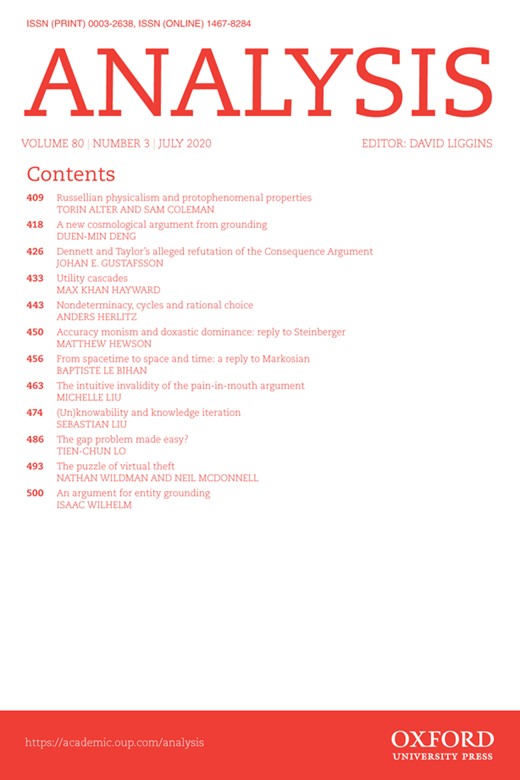-
Views
-
Cite
Cite
Max Khan Hayward, Utility cascades, Analysis, Volume 80, Issue 3, July 2020, Pages 433–442, https://doi.org/10.1093/analys/anaa011
Close - Share Icon Share
Abstract
Utility cascades occur when a utilitarian’s reduction of support for an intervention reduces the effectiveness of that intervention, leading the utilitarian to further reduce support, thereby further undermining effectiveness, and so on, in a negative spiral. This paper illustrates the mechanisms by which utility cascades occur, and then draws out the theoretical and practical implications. Theoretically, utility cascades provide an argument that the utilitarian agent should sometimes either ignore evidence about effectiveness or fail to apportion support to effectiveness. Practically, utility cascades call upon utilitarians to rethink their relationship with the social movement known as Effective Altruism, which insists on the importance of seeking and being guided by evidence concerning effectiveness. This has particular implications for the ‘Institutional Critique’ of Effective Altruism, which holds that Effective Altruists undervalue political and systemic reforms. The problem of utility cascades undermines the Effective Altruist response to the Institutional Critique.




